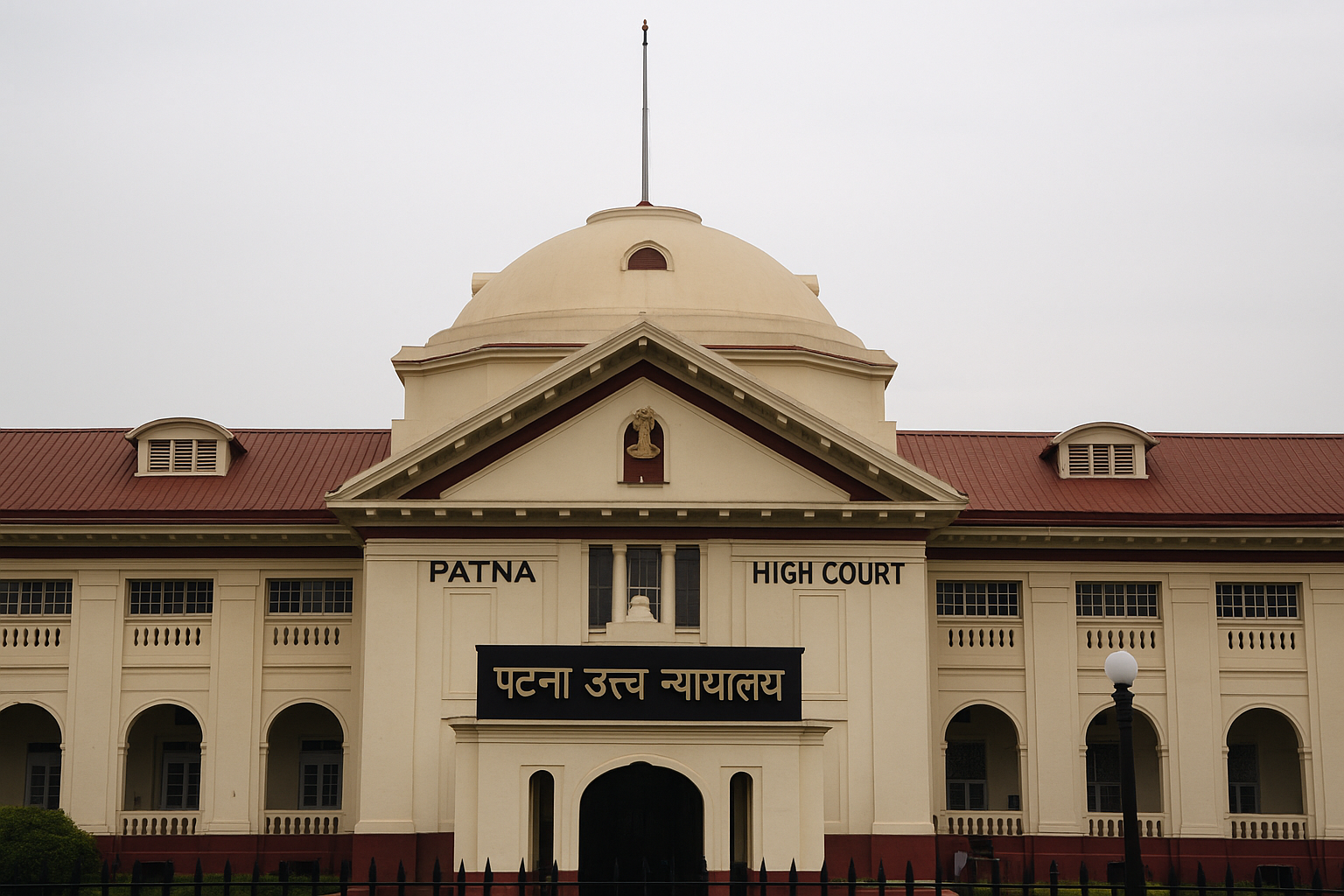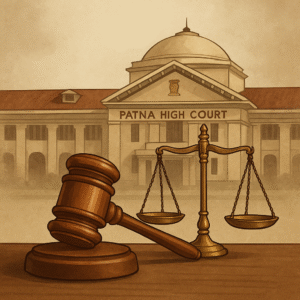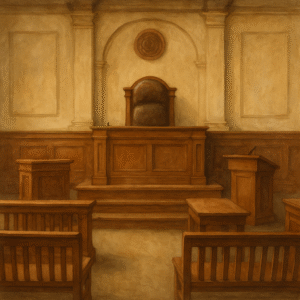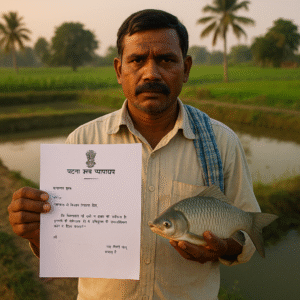Simplified Explanation of the Judgment
In a recent judgment delivered on January 17, 2022, the Patna High Court dealt with two interconnected writ petitions involving a dispute over a tender for constructing a 191-bedded hospital at Jehanabad. The Bihar Medical Services and Infrastructure Corporation Limited (BMSICL) had issued a tender in 2019 for the project. Two construction companies – a joint venture led by one contractor and another private infrastructure firm – were found technically qualified, with the joint venture (petitioner) emerging as the lowest (L-1) bidder in the financial bid stage.
However, before a formal contract could be awarded, a complaint was received, highlighting that one of the entities in the joint venture had previously been debarred from future government contracts by the Building Construction Department. This raised concerns about the eligibility of the petitioner.
After internal scrutiny, the BMSICL decided to cancel the entire tender process. This prompted the petitioner to approach the court, seeking a direction to award the contract based on the original tender, while the second-lowest bidder (respondent no. 7) also filed a writ petition, challenging the tender awarded to the joint venture and seeking that the contract be handed to them instead.
The High Court took note of the fact that both partners in the joint venture had past instances of debarment, although not active on the date of tender submission. The main legal question was whether such previous debarments, even if inactive at the time of bidding, should have been disclosed, and whether their non-disclosure justified the cancellation of the entire tender.
The Court held that the bidders were required to make full and truthful disclosure in the affidavit submitted during the bidding process. The failure to disclose past debarments—even if no longer in effect—amounted to suppression of material facts. The Court also emphasized that Clause 4.8 of the tender’s “Instruction to Bidders” permitted disqualification for misleading or false statements.
Importantly, the Court highlighted that BMSICL did not disqualify the petitioner directly but instead opted to cancel the tender and reissue a fresh one—a decision administrative in nature. Judicial review under Article 226 of the Constitution was found to be limited in such cases. Given this, the Court refused to interfere with the BMSICL’s decision, citing the need for government bodies to retain discretion in contract matters, especially in the interest of transparency and fairness.
Additionally, the Court rejected the plea by the second-lowest bidder (respondent no. 7), who had also participated in the re-tender process. Having done so, the Court noted, they were barred from challenging the cancellation of the original tender.
In essence, both writ petitions were dismissed.
Significance or Implication of the Judgment
This judgment is significant in reinforcing the principle that full and honest disclosure is crucial in government tenders. Even if a party is no longer debarred at the time of bidding, past debarments should still be disclosed to ensure transparency and maintain trust in public procurement processes.
For government agencies like BMSICL, the verdict upholds their right to cancel tenders for administrative reasons if fairness is in question, without the need to record elaborate reasons. This protects public interest and allows for efficient contract management.
For contractors and companies, the ruling serves as a cautionary reminder to ensure compliance with affidavit requirements, and not to omit or suppress any material information.
Legal Issue(s) Decided and the Court’s Decision with Reasoning
- Whether a tenderer must disclose past debarments, even if not in force at the time of bidding:
- Yes. The Court held that non-disclosure of such information, even if the debarment period had expired, amounted to misleading the authorities.
- Whether the cancellation of a tender process without detailed reasoning is valid:
- Yes. The Court ruled that the cancellation of a tender is an administrative decision and does not require detailed justification unless mala fide is proven.
- Whether the second-lowest bidder can challenge the cancellation of a tender after participating in the re-tender process:
- No. Participation in the new tender process was deemed acceptance of the cancellation, thus barring further challenge.
- Whether judicial review is permissible in such tender-related disputes:
- Judicial review is limited in tender matters, especially when there is no evidence of arbitrariness or mala fide intent.
Judgments Referred by Parties
- Oryx Fisheries (P) Ltd. v. Union of India, (2010) 13 SCC 427
- Kranti Associates (P) Ltd. v. Masood Ahmed Khan, (2010) 9 SCC 496
Judgments Relied Upon or Cited by Court
- Uflex Ltd. v. Government of Tamil Nadu, (2022) 1 SCC 165
- Jagdish Mandal v. State of Orissa, (2007) 14 SCC 517
- Michigan Rubber (India) Ltd. v. State of Karnataka, (2012) 8 SCC 216
- Caretel Infotech Ltd. v. Hindustan Petroleum Corpn. Ltd., (2019) 14 SCC 81
- Afcons Infrastructure Ltd. v. Nagpur Metro Rail Corpn. Ltd., (2016) 16 SCC 818
Case Title
M/s B. Rai Construction Company and INSCPL (JV) v. State of Bihar & Ors.
With
R.S. Agrawal Infratech Pvt. Ltd. v. State of Bihar & Ors.
Case Number
CWJC No. 8134 of 2021
CWJC No. 12949 of 2021
Coram and Names of Judges
Hon’ble Mr. Justice Chakradhari Sharan Singh
Hon’ble Mr. Justice Madhuresh Prasad
Names of Advocates and who they appeared for
- For the Petitioner (CWJC No. 8134/2021):
Mr. Y.V. Giri, Sr. Advocate; Mr. Shivendra Prasad, Mr. Pranav Kumar, Ms. Shrishti Singh, Mr. Sumit Kumar Jha (Advocates) - For the Petitioner (CWJC No. 12949/2021):
Mr. Ranjeet Kumar, Advocate - For the Respondent State:
Mr. Vikash Kumar, S.C.-11 - For the Respondent BMSICL:
Mr. Lalit Kishore, Sr. Advocate - For Respondent No. 7 (in CWJC No. 8134/2021):
Mr. Ranjeet Kumar, Advocate - For Respondent No. 5 (in CWJC No. 12949/2021):
Mr. Y.V. Giri, Sr. Advocate and team
Link to Judgment
If you found this explanation helpful and wish to stay informed about how legal developments may affect your rights in Bihar, you may consider following Samvida Law Associates for more updates.








